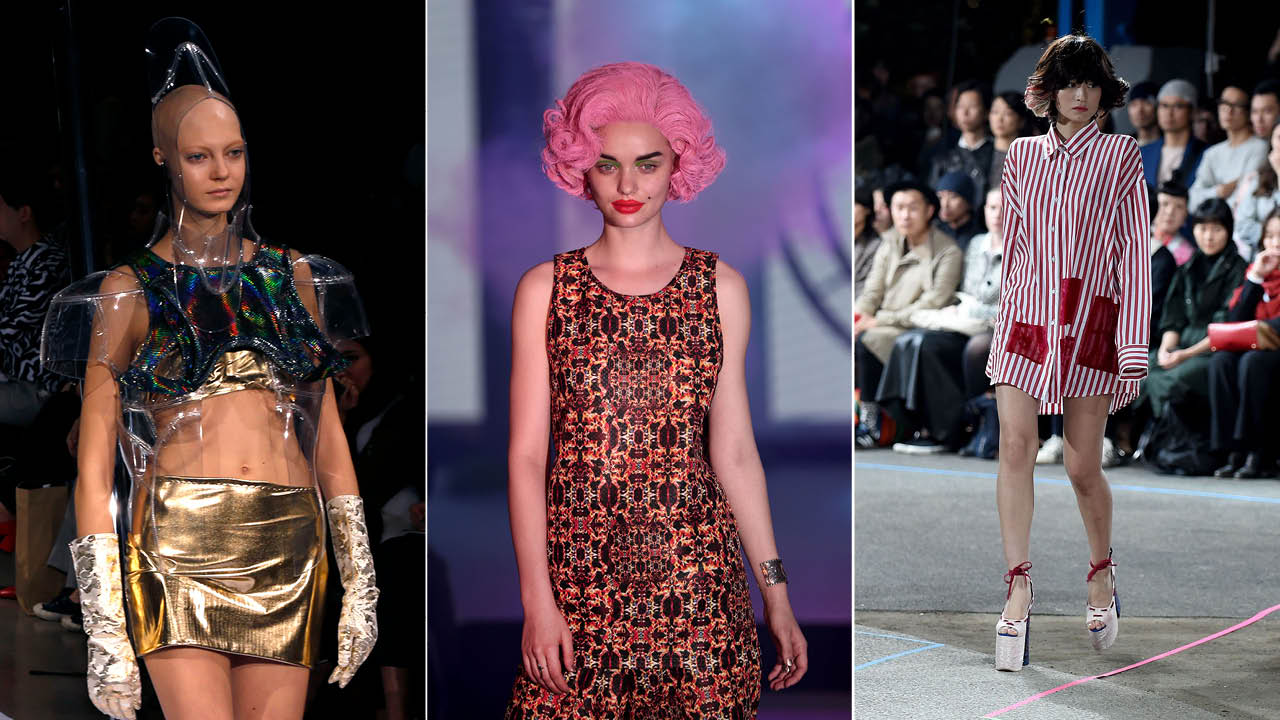The six days that constituted Amazon Fashion Week Tokyo from Oct. 17 to 22 featured a wide range of styles, from pop and punk inspirations to commercial and avant-garde creations. It was the first collection to be sponsored by Amazon and, while many wondered if the involvement of the online retailer represented something of a shake-up, it was business as usual during the week: There were a few hits as well as some misses, but the lineup as a whole failed to impress. That said, there were still some tangible brighter moments.
Saturday was most definitely the highlight of the week, with no less than three designers showcasing items that would look equally as impressive on the runways of Europe. In the evening, Mikio Sakabe produced an applause-worthy 50-piece collection that was a perfect representation of Tokyo-made quality and creativity. His collection featured oversized, unbalanced shapes and odd mismatched fabrics that challenge the idea of dressing "pretty," or even "fashion" as a whole. Over the past 10 years, Sakabe has been viewed as a designer who sits apart from his peers, producing engaging shows that have gone so far as to employ idols as models on futuristic stilts or use male models in a schoolgirl-inspired womenswear collection. This year, Sakabe was selected as a finalist in the prestigious LVMH Award in Paris and, while he didn't win, it seemed to embolden him. Asked if he would be decamping to Europe soon, he said: "I still want to show in Tokyo going forward. In Paris, I'll show it differently than what I would here anyway."
Earlier that same day, a couple of Sakabe's proteges, Akiko Aoki and Keisuke Yoshida, presented collections that featured even more subversive and dark vibes: corseted flower print dresses (Aoki) in conjunction with moody school uniform-inspired outfits (Yoshida). Sakabe runs a fashion school called Coconogacco, which both designers graduated from. Their gritty, purposely unrefined style has become a huge movement in global fashion, suggesting Sakabe is building an army of like-minded peers in Tokyo that could successfully disrupt the stale ideologies that are sinking the domestic fashion industry.



